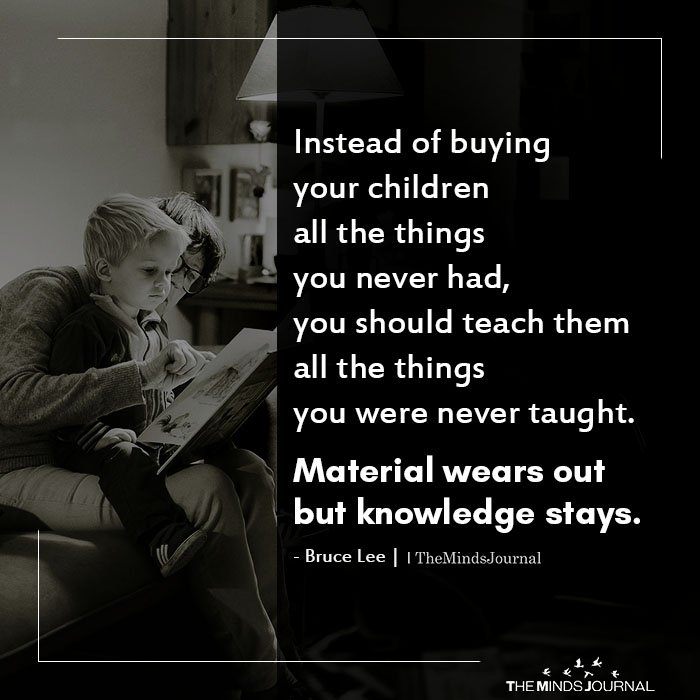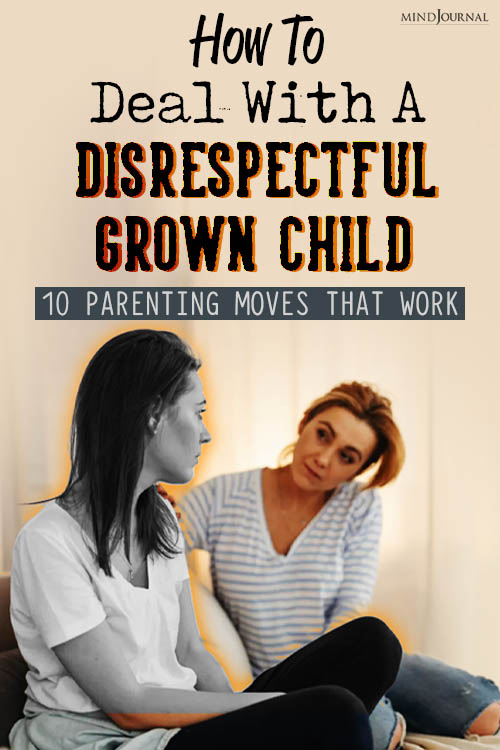It’s one of the toughest pills to swallow: a disrespectful grown child. Whether they’re dismissing your advice, talking back, or just acting like they couldn’t care less about you or your feelings, it hurts. But how to deal with a disrespectful grown child without feeling like you’re losing your mind?
Today, we are going to talk about the signs of a disrespectful grown child and how to deal with one. Spoiler: It’s not about “getting back at them” — it’s about creating change together, so that you can have a healthy relationship with each other, that’s based on mutual respect.
First, let’s start with the signs of a disrespectful grown child.
Related: Why Do I Hate My Father? 8 Effective Ways to Mend Your Relationship
6 Signs of a Disrespectful Grown Child
1. They’re Always Dismissing You
One of the biggest red flags of disrespectful behavior in adult children? When your child starts acting like they know it all — and you, apparently, know nothing.
If they’re constantly brushing off your advice, ignoring your feelings, or acting like your words are worthless, it’s not just annoying; it’s disrespectful.
You might say, “Hey, I don’t think that’s a good idea” and they’re already tuned out, eyes rolling, ready to move on. This attitude says, “Your opinion doesn’t matter.” Ouch, right?
2. They Get Snarky or Mean-Spirited
Everyone’s had a moment of frustration where their words get sharp, but if your grown child is regularly sarcastic, rude, or just downright mean to you, something’s off. Think snide remarks, insulting tones, or even mocking you in front of others.
It’s one thing to have a tough conversation, but if their go-to response is to tear you down or belittle you, that’s a clear sign of disrespect. A little tough love is okay, but a constant barrage of negativity is not.

3. They’re Always Criticizing You
One of the signs of a disrespectful grown child is this. If your child has suddenly become a full-time critic of your life, your choices, or your beliefs, it can feel like a slap in the face.
A respectful child might disagree with you, but they do it with understanding. If they’re constantly pointing out your flaws or making you feel like nothing you do is right, it’s disrespectful.
It’s like they’ve suddenly forgotten you’ve lived a whole life, raised them, and (gasp) maybe you know a thing or two by now. This isn’t about healthy disagreements — this is about undermining everything you stand for.
4. They Refuse to Own Their Mistakes
This one is a biggie. If they’re quick to point fingers but never takes responsibility for their own mistakes, it’s a massive sign of disrespect.
They’ll blame you for everything that goes wrong, avoid accountability, and act like their actions don’t have consequences. Instead of owning up, they’ll deflect, deny, or make excuses. It’s exhausting and damaging to the relationship.
We all mess up, but the key is how we handle it — and if your child can’t take responsibility, it’s a tough road ahead.
5. They Manipulate or Guilt-Trip You
Manipulative behavior isn’t just frustrating; it’s downright hurtful, and is one of the biggest signs of disrespectful behavior in adult children.
If your child is using guilt trips to get what they want — “I’m just trying to make it on my own, why can’t you support me?” or “I don’t need your help, but I guess I have no choice” — it’s a tactic to control you emotionally.
They might play the victim card or make you feel selfish for setting boundaries. This type of emotional manipulation is disrespectful and problematic because it takes advantage of your empathy and forces you into uncomfortable situations.
Related: 5 Types Of Moms Who Raise Happy, Healthy Kids — According To A Therapist
6. They Act Like You Owe Them Everything
It’s one thing to ask for help when it’s needed, but when your child starts acting like they’re entitled to everything — your time, your money, your advice — that’s a sign of a disrespectful grown child.
You may have raised them, but that doesn’t mean they get to treat you like a personal bank or counselor with no boundaries.
If they always take without giving, never express any gratitude, or expect constant support without showing any appreciation, it’s time to sit down and have a serious chat.
Now that we have explored the signs of a disrespectful grown child, let’s talk about how to deal with a disrespectful grown child.
How to Deal With a Disrespectful Grown Child
1. Set Firm Boundaries (And Stick to Them)
You might have let things slide in the past, but the time has come to set some clear boundaries. Let your child know exactly what behavior is unacceptable and what the consequences will be.
Be direct: “I will not tolerate being talked to that way, and if it happens again, we’re going to have to take a break from this conversation.”
This isn’t about punishment; it’s about respect. If they know there’s a line they can’t cross, they may think twice before being disrespectful.
2. Walk Away When Things Get Heated
Here’s the thing: arguing with a disrespectful grown child is rarely productive. If the conversation turns toxic, be willing to walk away. Stay calm, don’t raise your voice, and simply say, “I’m not going to continue this conversation right now.”
This moves the power back into your hands and shows them that you won’t engage in disrespect. It might be tough at first, but it teaches them that disrespect won’t be tolerated — no matter how heated the discussion gets.
If you are wondering how to deal with a disrespectful grown child, then this is one of the best things you can do.
3. Lead by Example
Want your child to be more respectful? Start by modeling that behavior yourself. This doesn’t mean being a doormat, but it does mean showing them what healthy, respectful communication looks like.
Listen when they talk, acknowledge their feelings, and be more patient. You’re not perfect, but you can lead by example. If you expect them to treat you with respect, you need to show that you’re capable of offering the same in return.
Related: When Your Grown Child Hurts Your Feelings: 9 Healing Strategies Every Parent Needs To Know
4. Have the Tough Conversations
Sometimes, it’s uncomfortable, but you’ve got to talk about the elephant in the room. Have an honest conversation about their behavior.
“Hey, I’ve noticed that you’ve been really disrespectful lately, and it’s hurting me. I don’t want to keep feeling this way — can we talk about what’s going on?”
Approach them and the situation with empathy, but don’t shy away from calling out the disrespect. They might not even realize the impact of their actions until you put it out there.

5. Let Natural Consequences Take Their Course
How to deal with a disrespectful grown child? Sometimes, the best way is to let them face the consequences of their actions. If they refuse to respect your boundaries, you don’t have to be the one to enforce every single consequence.
If they’re rude or demanding, stop helping them out — no more constant financial support or emotional labor.
When they see the effects of their disrespect (like lost opportunities or strained relationships), they might start working on changing their bad behavior.
6. Seek Help When Needed
If things don’t improve, and you can clearly understand that the relationship is becoming toxic, don’t hesitate to ask for professional help. Family therapy or even individual counseling for both you and your child can work wonders.
A neutral third party can offer valuable perspectives and strategies that can go a long way in helping you rebuild your relationship in a healthier way. Sometimes, we all need an outside voice to help break through the emotional clutter.
Bottom Line
Dealing with a disrespectful grown child isn’t easy — no one said it would be. But you can do something about it. It’s about finding balance: being firm with boundaries, compassionate in your approach, and consistent in holding your ground.
You’re not trying to control them — you’re trying to create an environment of mutual respect where both of you can grow and try to understand each other.
It is indeed tough love, but with time, patience, and the right moves, your relationship can evolve from a place of tension to one of understanding.
Related: 5 Steps To Raise An Emotionally Intelligent Child
Remember, you’ve got this. No matter how hard it gets, you don’t have to put up with disrespect. You deserve to be treated with the same kindness, respect, and love that you’ve given for years.










Leave a Reply